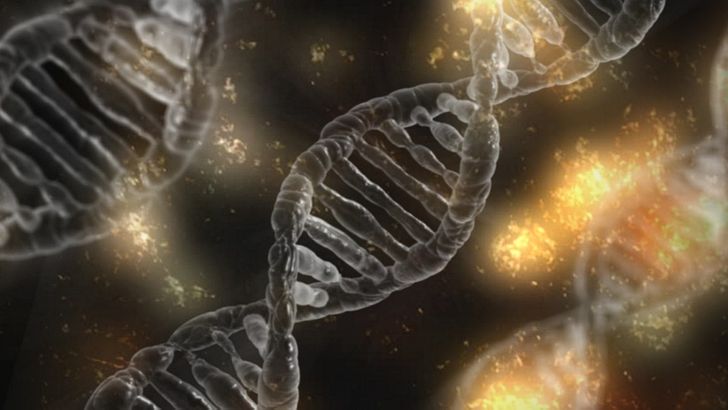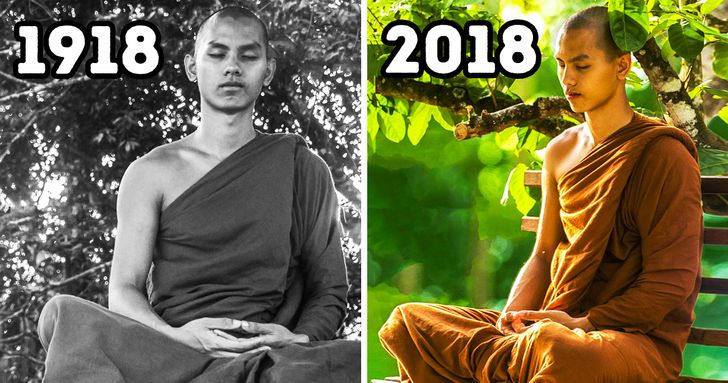i'm glad the cyber brain is mentioned while that being my main idea for most ideal immortality, ideal as in easiest achieved, not best way to live.
Scientists Claim We Might Be Immortal in 17 Years — This Is How
Immortality has fascinated people for thousands of years. The perspective of living forever has had such a strong case that people have been looking for an elixir or a remedy to prolong life for many centuries and modern science isn’t behind.
Ongoing research
The idea of immortality is so captivating that modern science and medicine may bring us as close to discovering a solution as ever.
For example, at Northwestern University in the US, scientists learned to turn off the “genetic switch” that causes aging, however, not in humans yet, but in worms. Of course, it’s a huge step from worms to humans, but this technique is already an important achievement.
Another achievement was to revive old mice by infusing blood from young mice. Researchers think this procedure could also work on humans.
Silicon Valley is also involved in this science, and we have some big names standing behind the research.
Worldwide contribution
A great amount of money is being put forward for immortality research, and there are many celebrities who are involved in the contribution:
Larry Ellison: one of the five richest men on Earth and one of the owners of Oracle.
Sergey Brin: co-founder of Google and the Calico foundation, which focuses on health, well-being, and longevity.
Aubrey de Grey: a scientist and a researcher; the founder of numerous studies on regenerative medicine.
7 Deadly SENS
Scientist and author of Ending Aging (2007), Aubrey de Grey, is working on strategies to exclude death from our genes. He is currently working on the “7 deadly SENS” — things that cause aging on a cellular level," and they are:
- Nuclear Mutations/Epimutations: mutations that can lead to cancer.
- Mitochondrial Mutations: components in our cells that are important for energy production.
- Intracellular Junk: proteins that are not properly “digested” by our cells.
- Extracellular Junk: proteins accumulated outside the cells. For example, in the brains of Alzheimer’s patients.
- Cell Loss: cells that can’t be regenerated by the body itself.
- Cell Senescence: when cells lose the ability to divide.
- Extracellular Crosslinks: cause the loss of elasticity in cells and tissues.
Modern science on immortality and 5 ways to achieve it:

The idea of immortality is captivating to this day and we have a ton of science fiction to imagine how it can turn out — movies, TV shows, books, and scientific articles provide an incredible amount of information.
Here are the five ways scientists believe to be able to achieve immortality:
Regenerative Blood Transfusions: Scientists have found a protein in young mice that can make their muscles and hearts stronger. If we can make more of this protein and put it in our blood, it could help us live longer.
Longevity Pills: A pill that helps our body fight aging could help us live longer. One company has already made a pill that they think can slow down the aging process.
Nanotechnology: Tiny robots could help us live longer by attacking cancer cells and fixing our bodies at the smallest level.
Longevity Genes: Scientists are trying to find genes that can help us live longer. If they can find them, they might be able to help us live past 100 years old.
Stem Cell Injections: Some rich people are trying to live longer by getting injections of stem cells. These cells can help fix tired parts of our bodies.
Eternal life through meditation?
While what scientists are dealing with still reminds us more of science fiction, let’s get back to what’s happening on Earth.
Ever heard of Dashi-Dorzho Itigilov? He was a Buryat Buddhist lama, born in 1852. And he is still believed to be in a meditative state, rather than dead. It is all due to the way he passed away. He recommended his fellow monks to start the process of meditation and the funeral rites while he sat in the lotus position, claiming he would soon pass away. He never “woke up” from this meditation and to this day he remains in the lotus position and seems to remain immune from any signs of decay. People believe he is in a state of hibernation or a nirvana-like state.
Well, maybe meditation won’t provide eternal life to all of us, but some of the benefits of meditation are:
- A release of endorphins
- Stress reduction
- Sleep improvement
- Pain relief
- Lowering of blood pressure
All of the above can have a positive effect on the longevity of your life.
Biohackers have a different approach to the matter of longevity. They use their knowledge of neuromediators and genes to prolong their lives and to improve their body performance.
The centenarians
Over the years, several men and women have achieved a long lifespan. Here are some of them:
Jeanne Calment (1875-1997), lived for 122 years and 164 days.
Shigechiyo Izumi (1865-1986), lived for 120 years and 237 days.
Sarah DeRemer (Clark) Knauss (1880-1999), lived for 119 years and 97 days.
Lucy (Terrell) Hannah (1875-1993), lived for 117 years and 248 days.
Marie Louse Febronie (Chasse) Meilleur (1880-1998), lived for 117 years and 230 days.
Some of such centenarians who are now alive are vegetarians, some eat a lot of meat and drink wine, some are smokers, many love chocolate, and many don’t like to exercise. But what they do have in common is that they are generally happy and easy-going. And we think it’s something to stick to while the scientists are busy trying to unlock the secret to immortality.
Comments
When was this made (the page and the time the information was sent out)
Don't fail to see the light, join the illuminati and all your dreams will come true, whatsapp +16468930405
Related Reads
14 Grandparents Whose Love Flows Through Every Branch of Their Family

My Daughter Is Calling Her Stepmom "Mom" Instead of Me

15 True Stories That Made Us Say, “The World Has Real Angels in It”

Pierce Brosnan’s Wife Stuns People With Her Transformation During Her Latest Appearance

I Discovered the Shocking Reason My Fiancé Decided to Marry Me

18 Stories About What Can Happen If You Decide to Adopt a Kid

14 True Stories That Remind Us Life Is Full of Suprises and Magical Twists

15 Parents That Deserve an Award for Their Great Sense of Humor

10 Small Acts of Kindness That Changed Someone’s Life Forever

My Husband Brutally Cheated on Me When I Was Freshly Postpartum, My Revenge Is Coming Now

My DIL Humiliated Me in Public, but Karma Came Fast

11 Real Stories of People Who Gave Up Everything for Love




